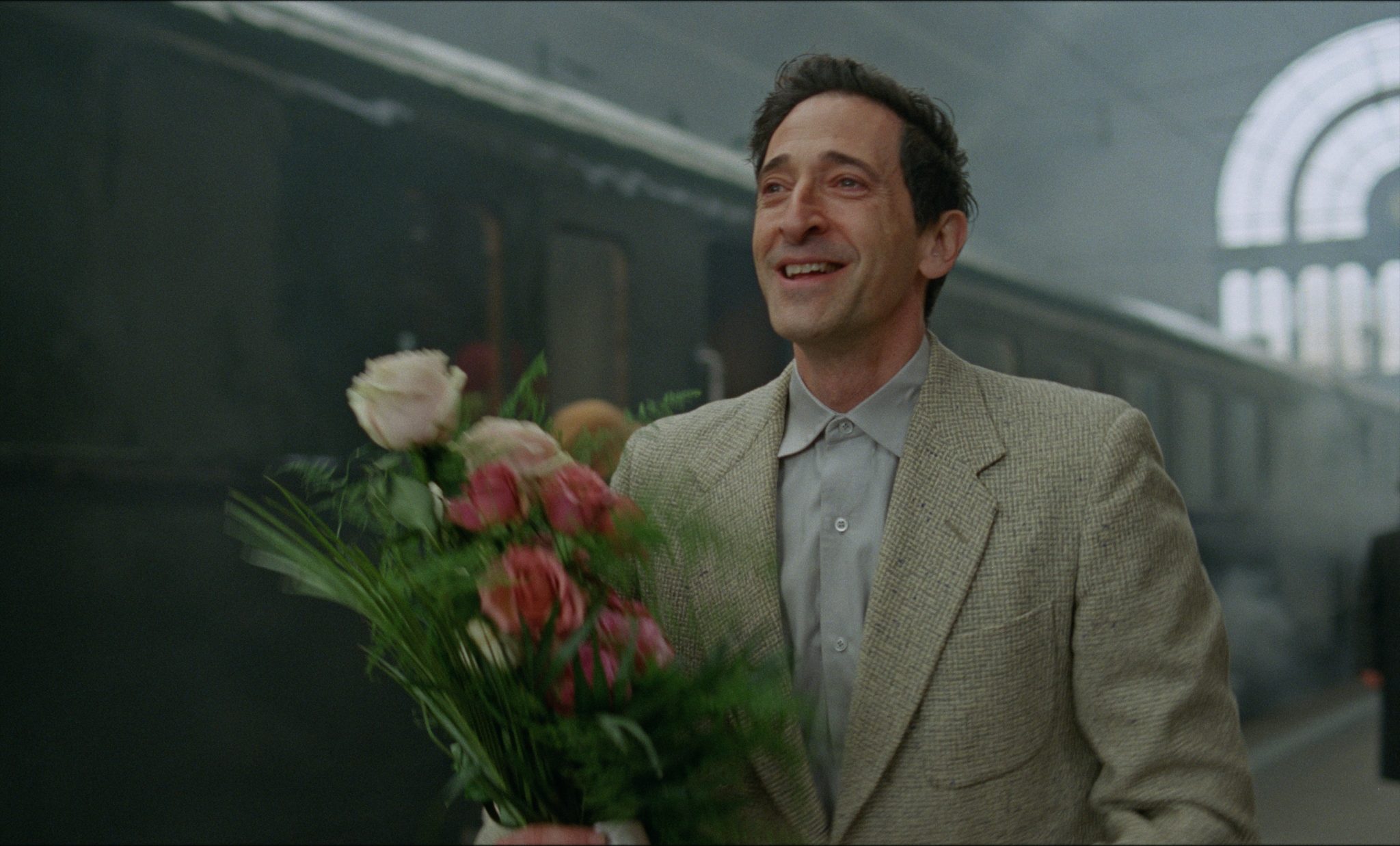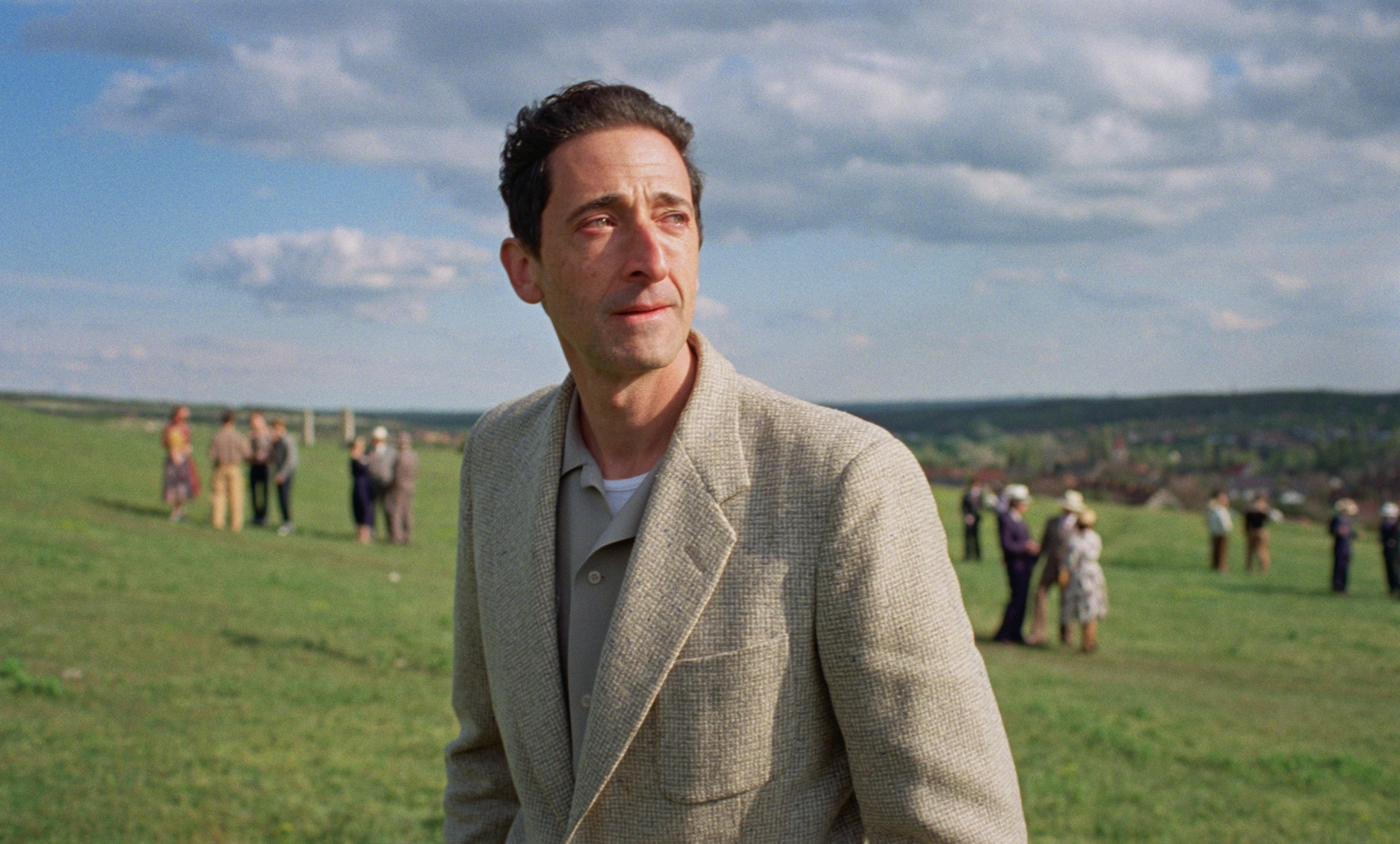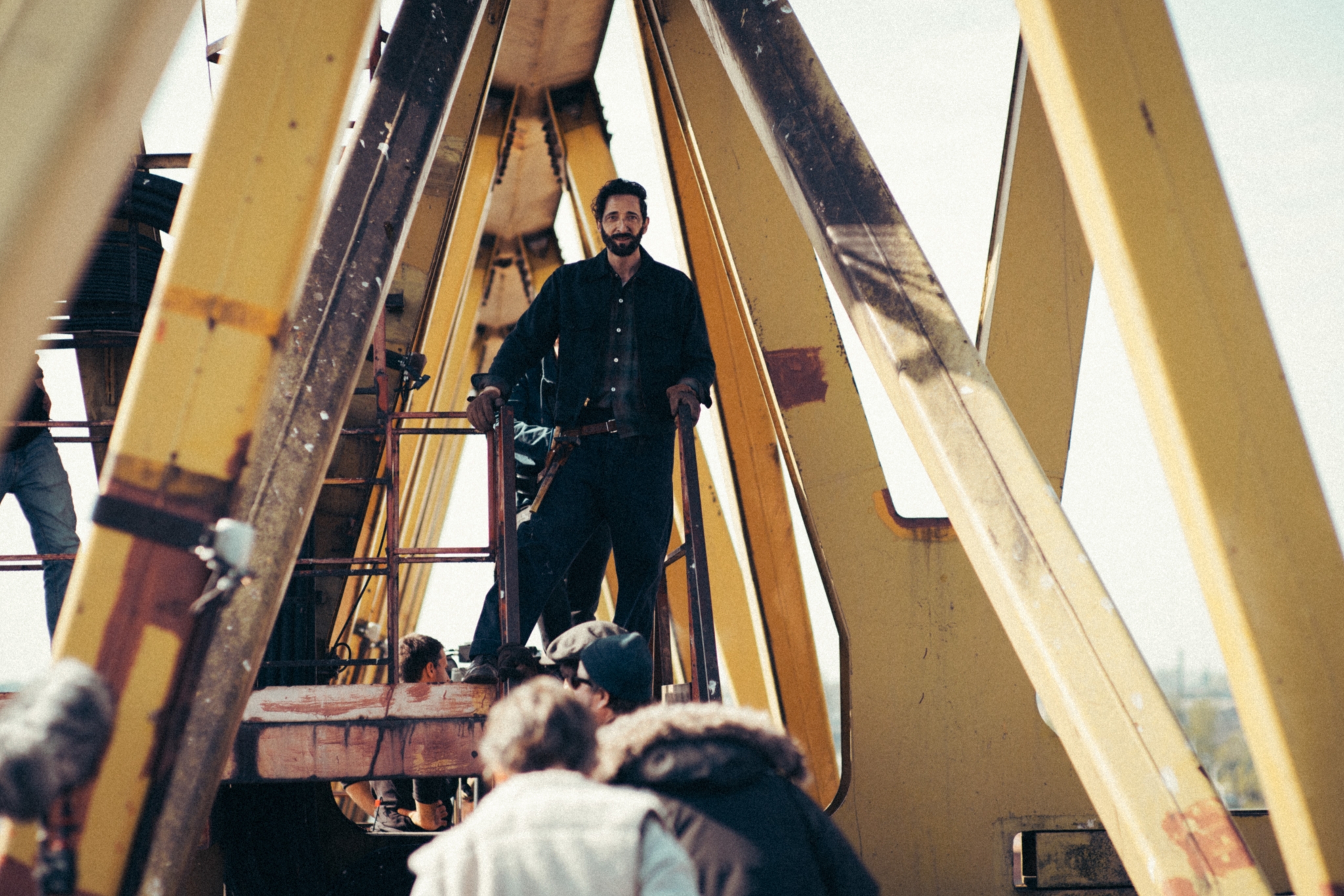

In an intimate conversation with Editor-in-Chief Charles Finch, Academy Award-winning actor Adrien Brody delves into the art of transformation and the many facets of his creative life. Reflecting on his triumphant return to the stage in The Fear of 13 (2024), Brody shares insights into the ephemeral beauty of theater, the lasting legacy of film, and the deeply personal influence of his artistic parents. From the marble quarries of Carrara to the quiet solace of his painting studio, Brody reveals how his passions for storytelling, art, and nature continue to shape his journey as both an artist and a New Yorker.
Charles Finch: The Fear of 13 is your first time on the stage in many years. How do you prepare for theatre work? Are there certain rules of film acting that you had to consciously shed in order to get back into the groove of this other artistic medium?
Adrien Brody: One of my fellow actors in the play would say—just before we go out onto the stage each night: “leave it all on the stage.” I love that expression because you have that one opportunity to let go of all the distractions and focus in and root yourself into the character and the circumstances. To honour the whole story in its entirety each night, sharing all you can in that intimate space with the audience. Only they experience it—and you—and then it’s gone forever. It’s a vastly different process and creative experience and is very much interdependent with an energetic connection with the audience. Some nights you feel closer. Other nights, there will be obstacles. But each night, you get to relive that journey and each night you have to let it go after that final scene. Acting in film offers the luxury of honing into very specific moments and hopefully conquering them, and then putting them out of sight and out of mind for the rest of the shoot. There’s also a permanence to film that I welcome. The stakes are high because it lives on longer than you, so whatever you do better be good. I do love the potential for subtlety and nuance in the medium of a film, but it’s an interesting challenge to discover how to somehow find your close-up amidst a stage performance.
CF: Your mother is a photographer and your father a teacher and a painter. How have those two professions impacted the way you live your life and approach your work?
AB: My mother‘s eye and creative path as an artist has always been a beacon of light for me. She’s introduced me to so much in this world through her very specific lens, full of empathy and enthusiasm, humour, and sadness. She set the bar very high, and I have tremendous respect for her purity of spirit and artistic inclinations. My father has also been a true guiding force in my life. He’s also very creative, but he always treated me (and his many adoring students) with kindness and respect and most of all, patience. He’s wise beyond words and kinder and more responsible than any man I’ve ever met, so he too has set the bar quite high. My dad has been a pillar of strength in my family, that’s supported my mother’s—and my own creative paths. He is also a remarkably talented self-taught painter. He paints magnificent oil paintings with a sense of realism I could only dream of achieving.
CF: During the making of The Brutalist, you spent a few days in Carrara, Tuscany. What was your time like filming in the town and commune there? If a friend were to visit you on set, where’s the first place you would take them there?
AB: We were fortunate enough to shoot at my friend Gualtero’s marble quarry in Carrara. He generously invited Brady and our entire team into the quarry and enabled our indy film to have a scope and scale of epic proportions. I’m so grateful. Italy is such a magnificent place, I often dream of spending much more time there. The people, the culture, the food, the craftsmanship, all fill me with gratitude to be alive. If I had a visitor, I would take my friend for a long walk through town, stumble into a cafe, then perhaps a charming little restaurant, then a bar, then stumble home.

Adrian Brody in The Brutalist (2024)
CF: You often portray characters in intense or epic situations, and you immerse yourself into their being. Once a play or a film has ended, how do you leave that character behind? Do you have a routine, or do they always remain a part of you?
AB: I often joke that I have myriad techniques to help me get into character, but none that specifically exorcise the essence of the character from my being. I often have plenty of distractions or other projects that have been pushed aside to jump right into after I finish so that immersion, and switching of gears, tends to do a lot of the work; but a part of each role lives on in me. Sometimes I wake up reciting a line of dialogue or a lyric from the past. It’s a good feeling to have the ghosts of your characters still alive in some way, it’s comforting; it means you’ve made contact and invoked something that touched you and that hopefully, has the potential to touch others. Many personal lessons have been learned while in the shoes of the men that I have portrayed.
CF: On your days off, where do you search for inspiration?
AB: I do love a good impromptu museum trip. Sometimes, I’ll just look through some art books in the house. Other times, I’ll paint or make some music, but most days I’ll take a nice long walk, listen to the trees in the wind, the birds in the sky, maybe the waves if I’m lucky. Nature always reminds us of how we’re just a small part of the bigger picture, and just how vast that canvas is.
CF: Does painting offer you a different type of nourishment than working for the screen?
AB: Painting offers a sense of creative autonomy that I yearn for that is hard to achieve in a collaborative art form such as theatre or film. There are so many moving pieces and everyone must rely on one another to elevate the work. Painting allows you to get cooking when inspiration strikes and immerse yourself in a creative process that yields tangible work. You can also revisit it (or destroy it) if you don’t like it, which you definitely do not have the freedom to do as an actor in film.



CF: Do you find value in the solitude that painting provides?
AB: I’ve always found that quiet time alone with thoughts and a creative idea is quite fulfilling. I value being in nature, the countryside, or even quiet time alone. My dad is quite similar. When a moment of inspiration strikes, painting provides deep fulfillment for me. Sometimes I’ll stay up all night or work for days on end, to the point where I can literally hardly walk from having been crouched on the floor for hours at a time, sublimely focused. Those times are so gratifying, to feel so shattered and spent, knowing that some creative force has pulled me in, and shut out all the noise.
CF: How has being from New York influenced your approach to your craft? Does the culture of being a New Yorker affect how you interact with the wider world?
AB: I think growing up in New York has shaped me more than anything else—other than the influence of my folks. This city is such a diverse, multidimensional place, full of life and beauty, excitement, hardship, four distinct seasons, and so many creative, unique souls. I feel very blessed to have been born and raised here, and for all of the inspiration and curiosity this place is instilled in me.
CF: Do you have a golden rule in life, a regle d’or, that you follow as a human, as well as an actor?
AB: Mais bien sûr! “What comes around goes around.” And, either way, why not try to make the world a better place each day and offer others the courtesy, respect or attention that you crave yourself? It’s all about perspective and listening. I alway try to consider what would be a meaningful experience and valuable use of my time and energy. This pertains to acting as well as my day to day living and interactions.
CF: Is there a poem you love so much you would have it tattooed on your body, and why?
AB: Maybe I’d just write the word ‘bluebird’ [after Charles Bukowski’s 1992 poem] and call it a day.





